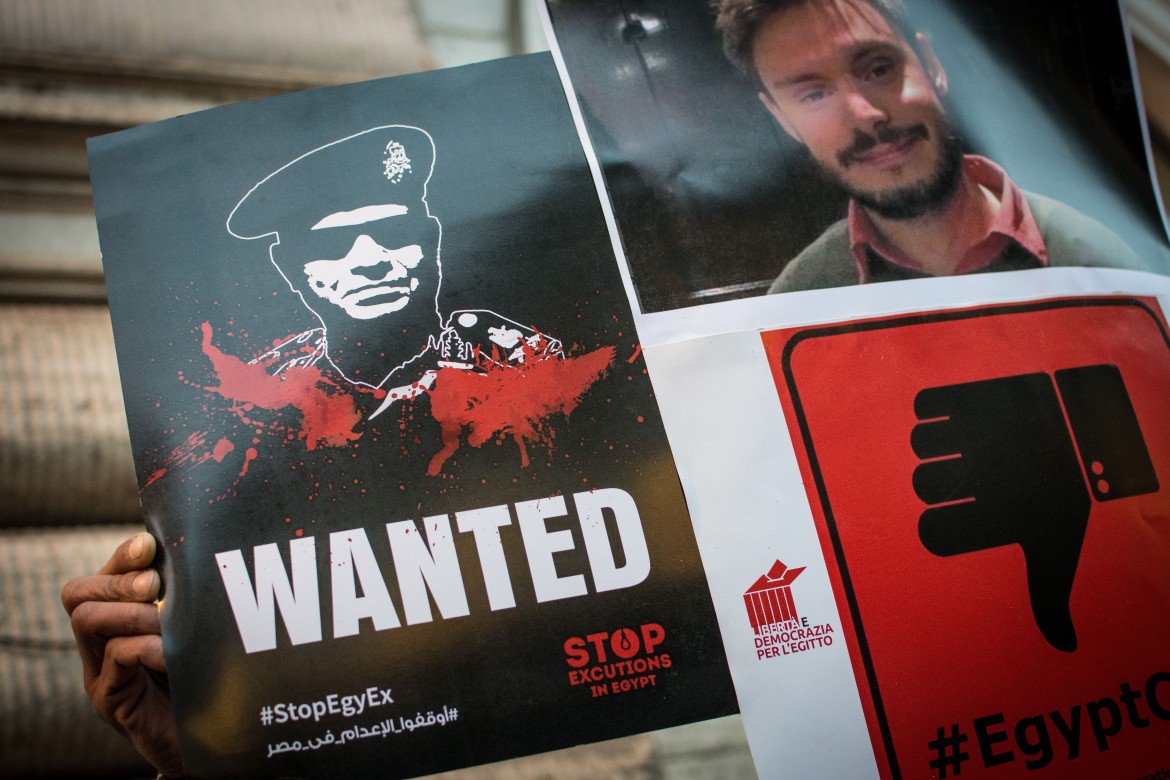Giulio Regeni
Egypt blames ‘vendetta’ for Regeni death
Egyptian authorities have concocted yet another diversion in the investigation into the torture and death of the Italian doctoral student.

The Egyptian Interior Ministry is again trying to blame Giulio Regeni’s death on something besides the government’s own oppressive state security apparatus, this time on a “personal vendetta.”
The family of the Italian doctoral student responded: “We will not content ourselves with a convenient truth and will not react to any attempt at misdirection.”
At this point, Egyptian investigators are probably looking into Regeni’s contacts. It is precisely in his circle of friends where they might find answers to who was responsible for his death — but it wasn’t a vendetta. Rather, it’s possible that his arrest on the streets of Cairo by authorities the night he disappeared was a case of mistaken identity; the young Italian doctoral student was close to, but not involved in, left-wing political activism.
The new supposed motive of personal revenge — which follows traffic accident, sexual promiscuity and the involvement of the Muslim Brotherhood — is the Egyptians’ latest attempt to disguise the fact it is doing nothing to provide significant evidence to Italian special investigators and to Interpol. Foreign detectives have now been in Cairo for three weeks. Not even the phone records have been turned over.
It finally occurred to Italian Foreign Minister Paolo Gentiloni to ask that Italian investigators have “access to all the sound and movie files, medical reports and records of all actions in the [investigative] process that are in the possession of the Giza prosecutor.”
It’s already been a month since Regeni disappeared, on Jan. 25. For six days after that, no one in the public knew he had vanished into thin air. That was the beginning of the many delays in the case, until his body was found Feb. 3.
Killing and torturing Regeni disrupted the taboo of the inviolability of foreigners in Egypt. And it will change forever the relationship that many Europeans have with Egypt and the military regime of Abdel Fattah el-Sisi. Now even foreigners, along with Egyptians, fear the state security.
Just a few days ago news broke of two young Turkish brothers, Mucahit and Cihat Kirtoklu, who have gone missing in Cairo. In this case their disappearance was immediately made known to the media. This could be essential to prevent the two from ending up in the hands of Regeni’s executioners.

On Wednesday, Regeni was remembered at The American University in Cairo (AUC) with readings of poems by Giuseppe Ungaretti and Salvatore Quasimodo. Today a small, silent commemoration was to take place at the doors of the Egyptian Embassy in Rome. Regeni’s sister, Irene, asked participants to display Amnesty International’s “Truth for Giulio Regeni” banners.
After the discovery of Regeni’s body in a ditch on the outskirts of the Egyptian capital, many have advanced suspicion of a conspiracy. In fact, according to many activists in Cairo, the practice of Egyptian police depositing tortured corpses has become a custom. “In the past the bodies of the prisoners were buried in the same buildings of state security,” one left-wing activist said. “Now they are left by the wayside.”
The repression of dissent in Cairo has not stopped, despite el-Sisi’s promises to stem indiscriminate attacks by police against citizens.
Yesterday, human rights activist Hossam Bahgat was stopped at Cairo airport and prevented from leaving the country. Bahgat was headed to Jordan to attend a United Nations meeting. He had previously been arrested for statements critical of the regime.
Even a judge, Amir Awad, was arrested after he presented an appeal signed by 31 judges against the early retirement of four colleagues accused of being close to the Muslim Brotherhood.
Originally published at http://ilmanifesto.info/regeni-lultimo-depistaggio/ on 2016-02-25
